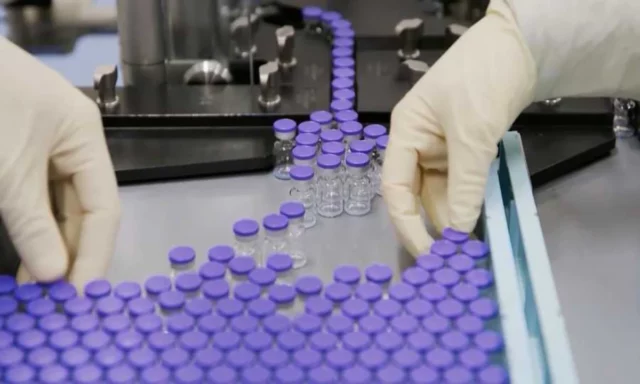Professors Özlem Türeci and Uğur Şahin, co-founders of BioNTech in Mainz, Germany –the company that partnered with Pfizer to make a revolutionary mRNA COVID-19 vaccine– have stated that their company is currently developing a cancer vaccine that could be within the reach of patients in the next decade, and that they believe it will represent a radical change in the treatment of the deadly disease.
“Yes, we believe that a cure for cancer, or a change in the lives of cancer patients, is within our reach”, Türeci said in his speech on the BBC’s “Sunday with Laura Kuenssberg” programme. When asked when many patients around the world could access cancer vaccines, Professor Şahin, for his part, said that this could happen “before 2030”.
During the interview, Türeci described how the mRNA technology that forms the core of BioNTech’s covid vaccine can be repurposed so that the immune system attacks cancer cells instead of invading coronaviruses.

Scientists return to their original research
According to Türeci, research into coronavirus vaccines “returns” to its original course that it had before the pandemic –the company went on to produce Covid-19 vaccines in the face of the global emergency– on cancer treatment that focuses on cancers tumors such as melanoma and bowel cancer.
The mRNA or messenger RNA in the vaccines in BioNTech’s development –which only use the genetic code of the virus, while conventional vaccines are produced using weakened forms of a virus– will target cancer cells as if they were on a “carrier poster”. search for criminals”, Türeci said. In this way, the mRNA will be able to distinguish cancer cells from normal cells and kill them.
In other words, instead of carrying a code that identifies viruses, the cancer vaccine would have genetic instructions for cancer antigens, that is, proteins found on the surface of tumor cells. Thus, the same approach that was used in the Covid-19 vaccine can be used to prime the immune system to seek out and destroy cancer cells.
Türeci: «We have several advances and we will continue working on them»
When the presenter asked the couple if “there is still a chance” that the vaccines will not work, Türeci diverted attention. “I do not think so”, he answered. “Everything we have learned about the immune system and what we’ve achieved with a cancer vaccine shows, in principle, clear activity: We can induce these killer T cells, we can target them”, he added. “As scientists, we are always hesitant to say that we will have a cure for cancer,” he continued, adding that the pair nonetheless have “a number of breakthroughs” that they will continue to work on.

